Stockholm. Hammarby Sjöstad - an eco-quarter on the site of an abandoned industrial zone
Categories: Design and Architecture | Ecology | Europe
By Pictolic https://pictolic.com/article/stockholm-hammarby-sjostad-an-eco-quarter-on-the-site-of-an-abandoned-industrial-zone.htmlStanislav Kaznov writes: The idea to build an eco-quarter on the site of an abandoned industrial zone arose due to the application for the 2004 Olympic Games. According to the voting results, Sweden lost to Greece, but the most serious intentions to bring the project to life remained. Squat, futuristic houses with increased glass area, footpaths hovering over the reeds, water channels and graceful bridges, greenery, lack of traffic and solar panels on the roofs - the authors of Hammarby Sjöstad have created a truly outstanding example of humanistic high-tech in architecture.
(Total 43 photos)
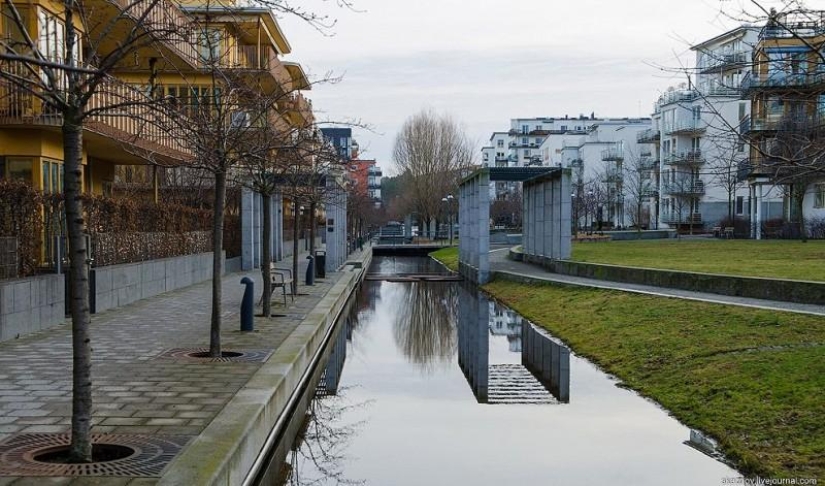
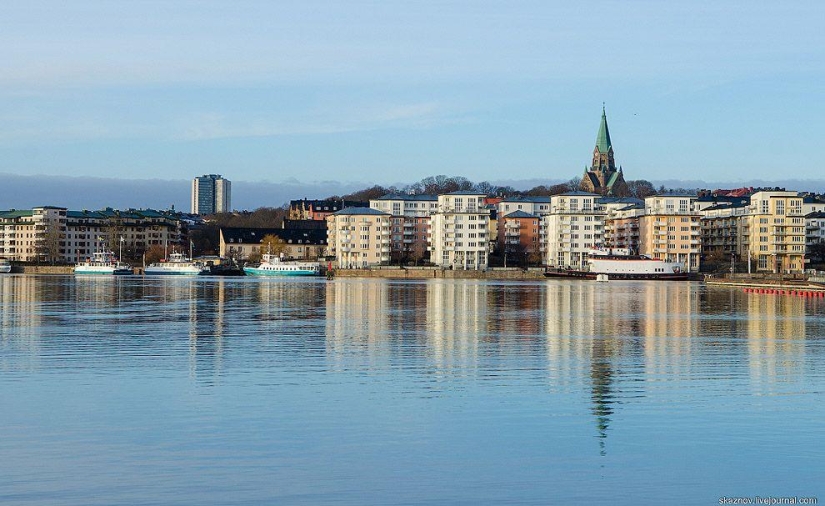
1. Many houses on Hammarby Sjöstad are adjacent to the water. The windows offer stunning views of the lake.
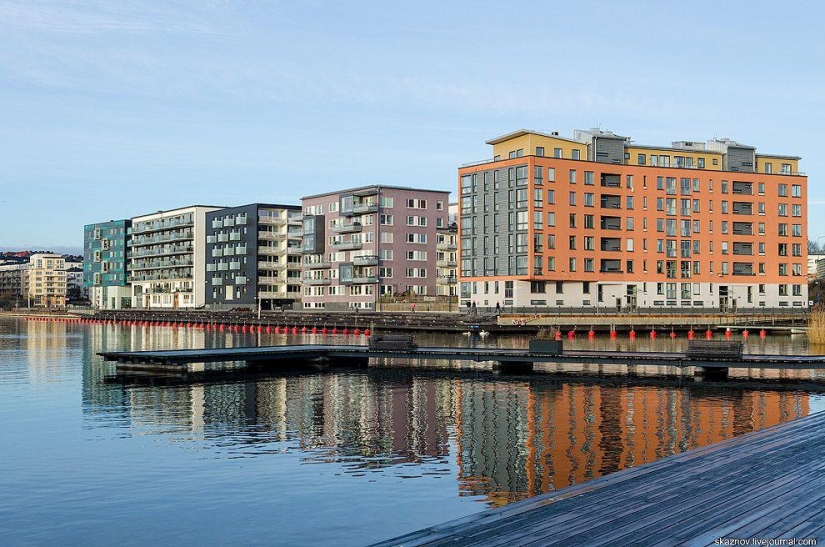
2. The ideologists of the project set themselves the task: the inhabitants of Hammarby Sjöstad should consume half as much water and energy resources as the average Stockholmer, who, however, consumes nowhere less - Sweden is one of the "greenest" nations in Europe.
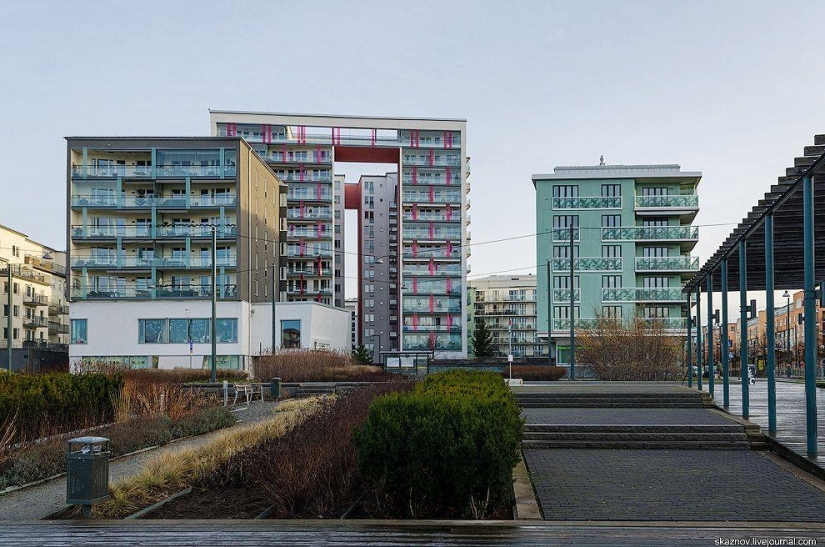
3. All inhabitants of Hammarby Sjöstad are part of the Hammarby model ecosystem, the name of which has become a household name.
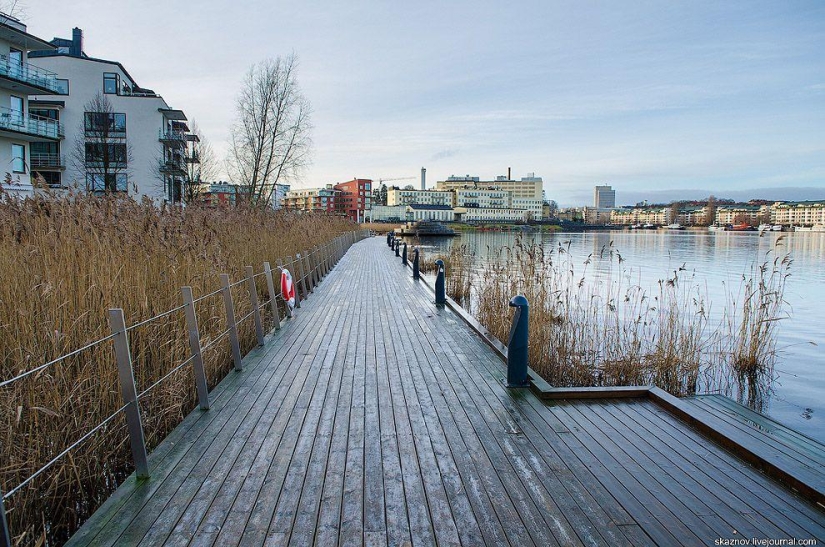
4. The wooden surface of the embankment is simply gorgeous, although it slipped a little in the morning.
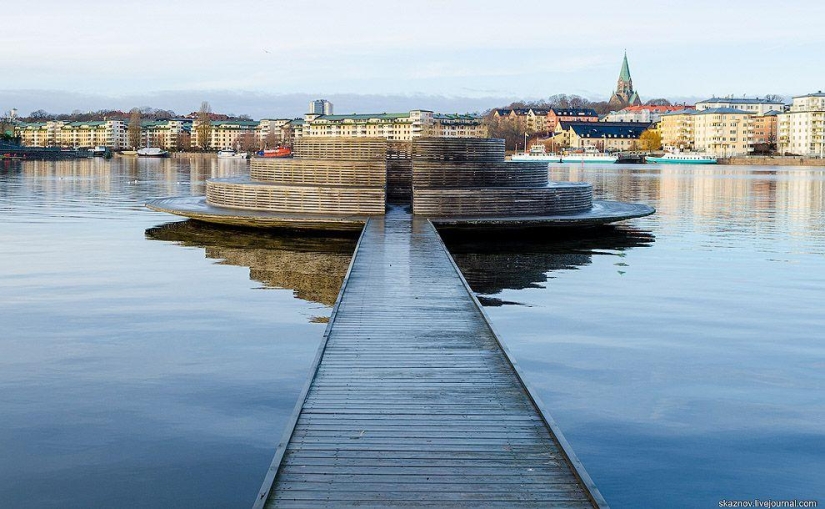
5. The main attraction of the area is the whimsical wooden building Observatorium, the project of the Swedish artist Ganilla Bandolin (Gunilla Bandolin).
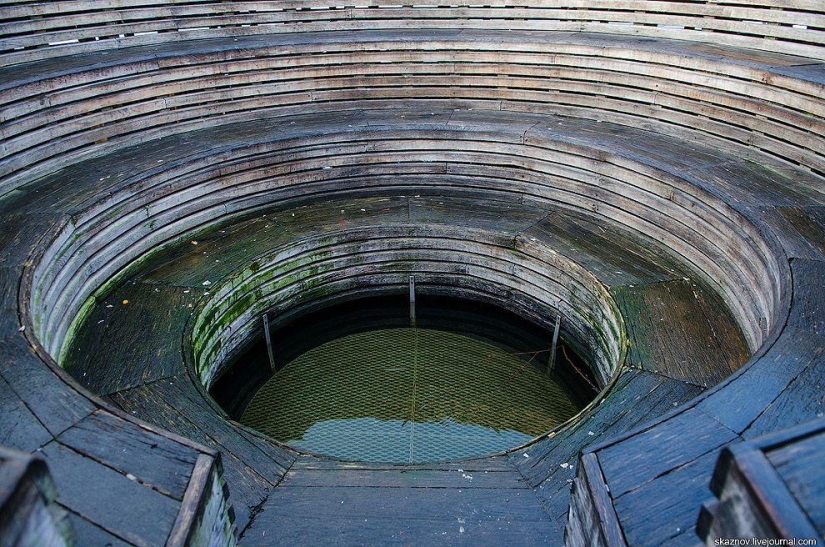
6. Going inside, I saw a rather strange observatory ... The "Observatory" has many appointments - this is a place for dates, meetings, picnics, parties, which are facilitated by a peaceful view of the water surface.
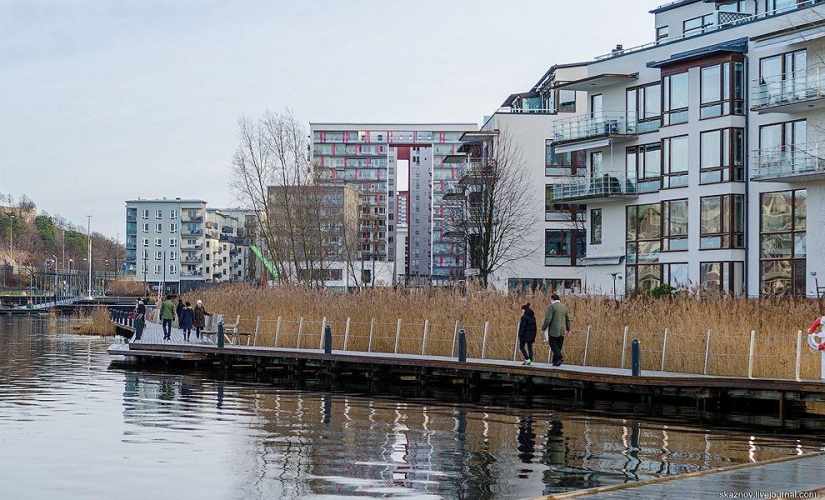
7. How nice it is to take a walk along the lake on a day off, leaving right from your house ...
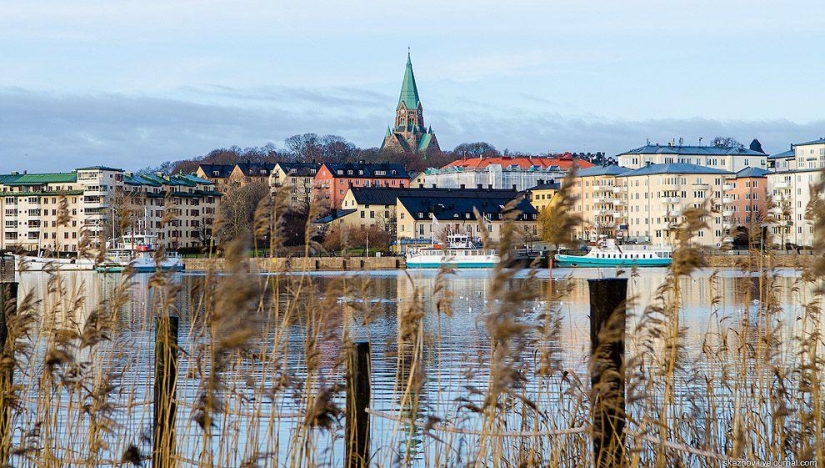
8. Strange as it may seem, reeds and grass are not cut down for some reason.
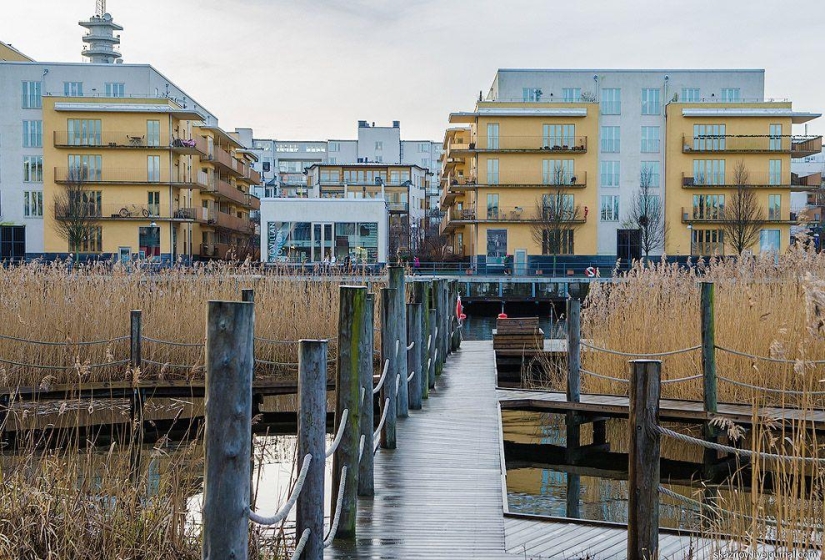
9. Walkway system…
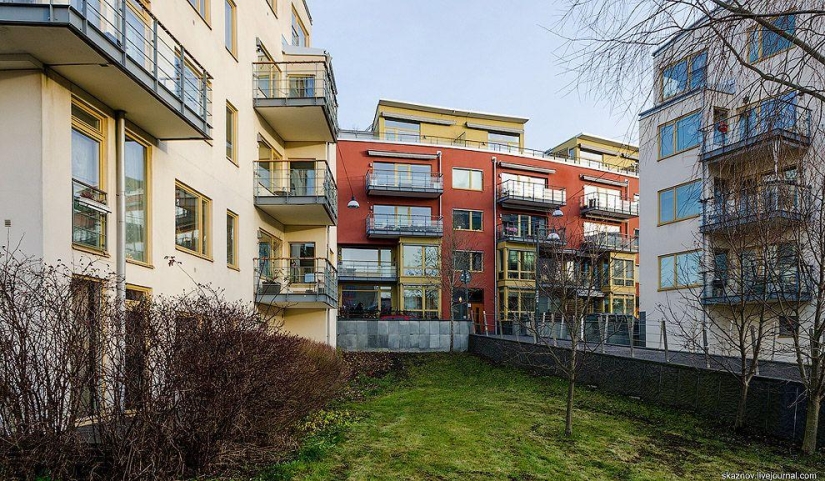
10. The eco-model of Hammarby Sjöstad requires high self-organization from residents. You need to sign up for the laundry in advance, most household utensils are stored in special common areas, and signs at each entrance indicate how many people this month threw garbage into the wrong receiver.
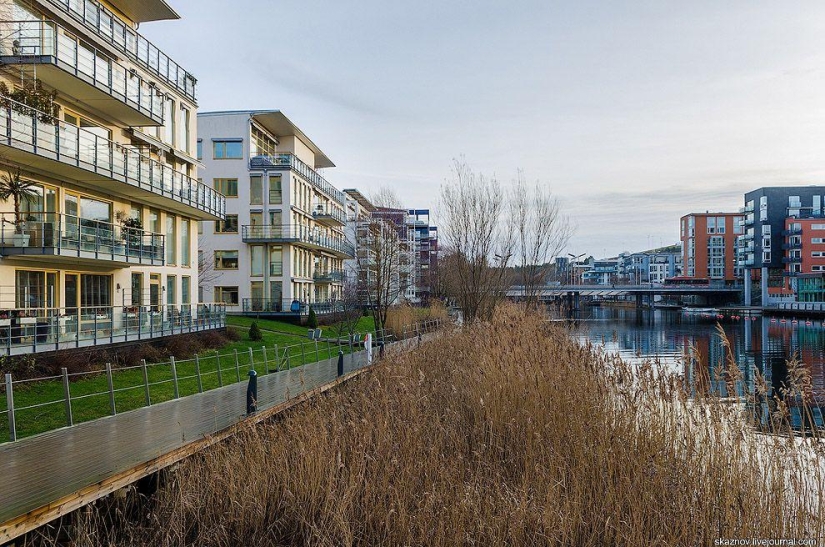
11. The Hammarby communal system recycles all the garbage that residents throw off into special pneumatic receivers in their entrances. Leftover food is thrown away in special cornstarch bags. Then all this will be processed into biofuel: the garbage is burned to generate electricity and heat the area. The water is purified for re-cycle. And solar panels are installed on the roofs of the houses.
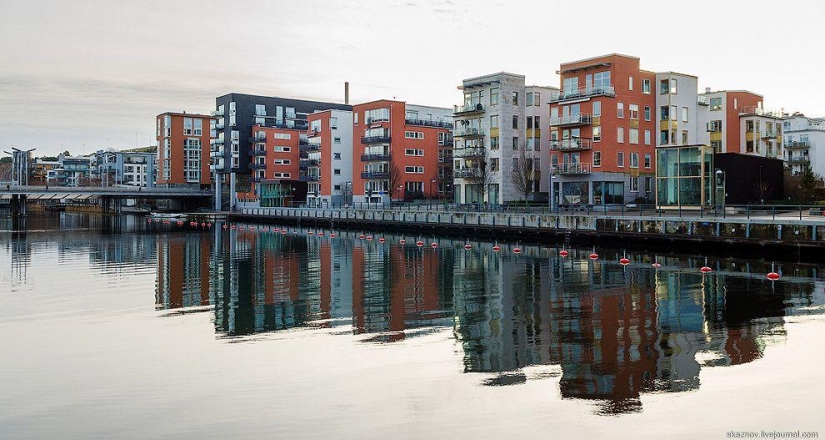
12. Note that the houses do not have air conditioners. In Stockholm, as it turned out, there is a centralized ... cooling system. It is considered one of the largest in the world in terms of size, its length reaches seven million square meters. In general, the principle is similar to that of a central heating system. Only through the pipes is supplied not heat, but cold. The air conditioning system works by natural cooling by sea waters. And when the temperature of the sea water is too high, it is cooled down with the heat pumps of the CHP.
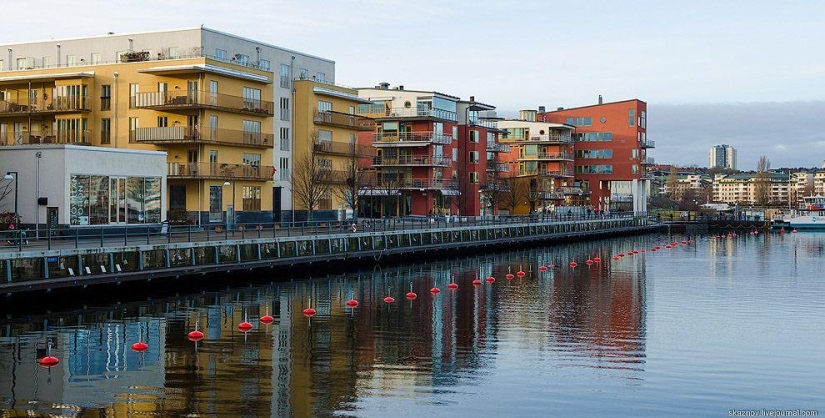
13. Now, the main thing is not to fall!!! Read slowly and enjoy… Modernization in Swedish: olive pit. Adding such an ingredient to coal was invented by the station manager Eva Kathrin Lindeman back in the 80s of the twentieth century. Crushed olive pits are mixed with limestone (it is needed to trap sulfur) and coal. Then all this in the form of a paste is fed into the boilers. As a result, fuel combustion is improved and CO2 emissions are reduced. Realized???
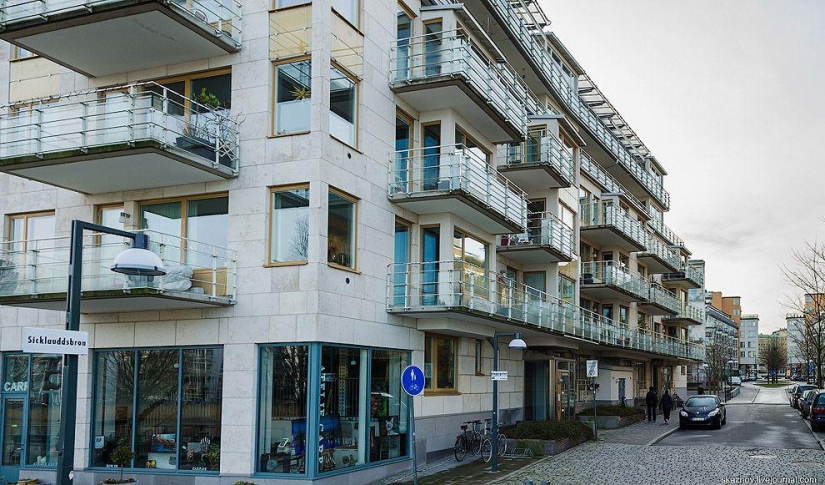
14.
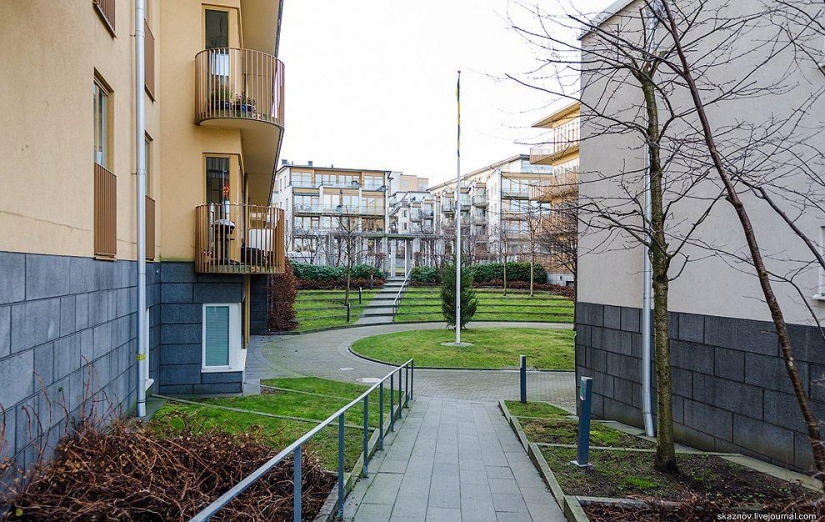
15. Yard spaces are incomparable ...
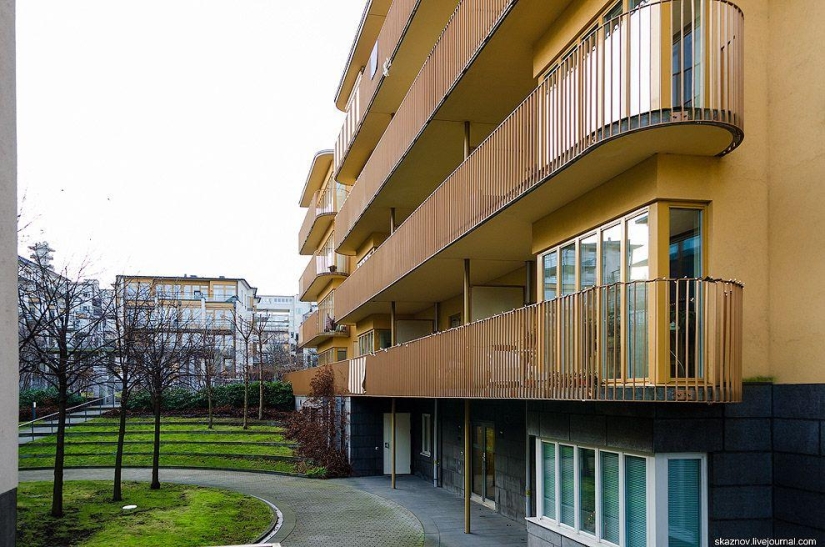
16.
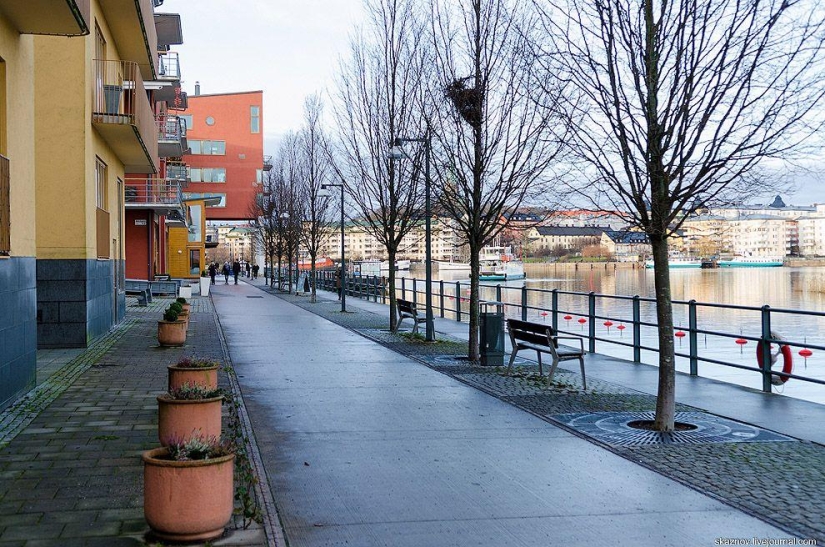
17.
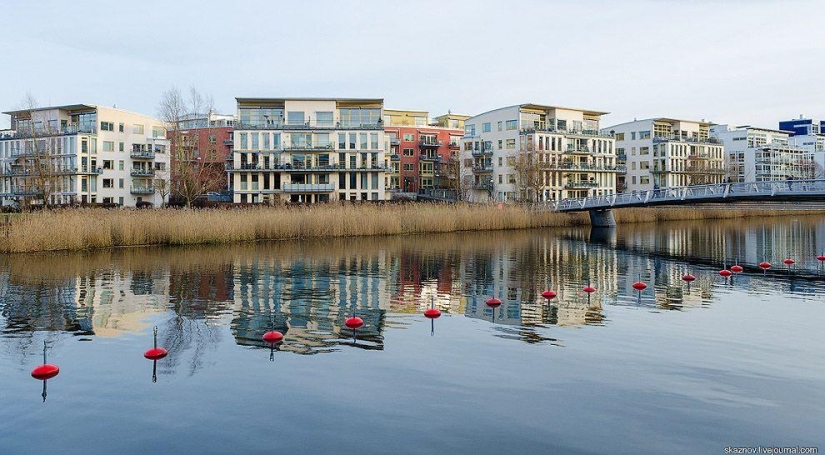
18. Houses are built so that everyone has enough sun. Restriction on the number of floors: near the water - no more than five floors, on the main streets - up to seven. Solar panels are located on the roofs of the houses - thanks to the energy received in this way, water is heated. Panels on one building meet his six-month hot water needs. In addition, biogas products are used for energy production - stations are located around the city. And the heat produced from waste is reused in the heat supply cycle. Energy efficiency is obvious: if 15 years ago the district consumed 200 kWh per year per square meter, now it is only 50 (including both heat and electricity).
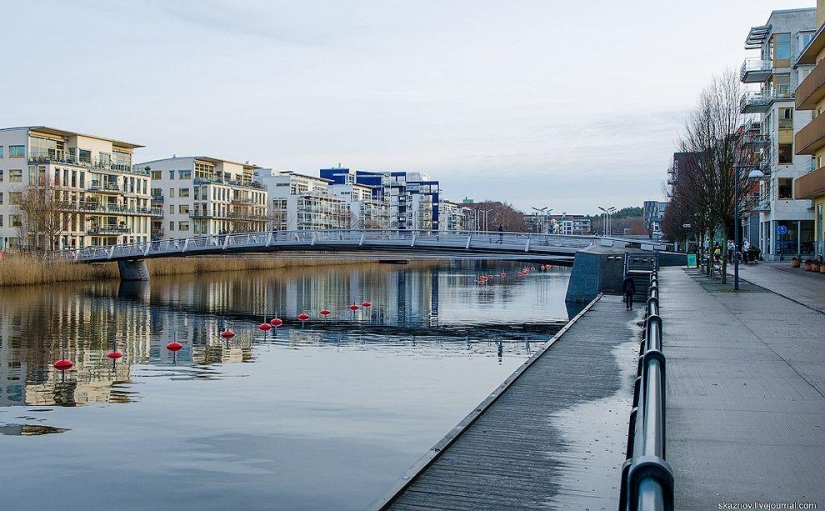
19.
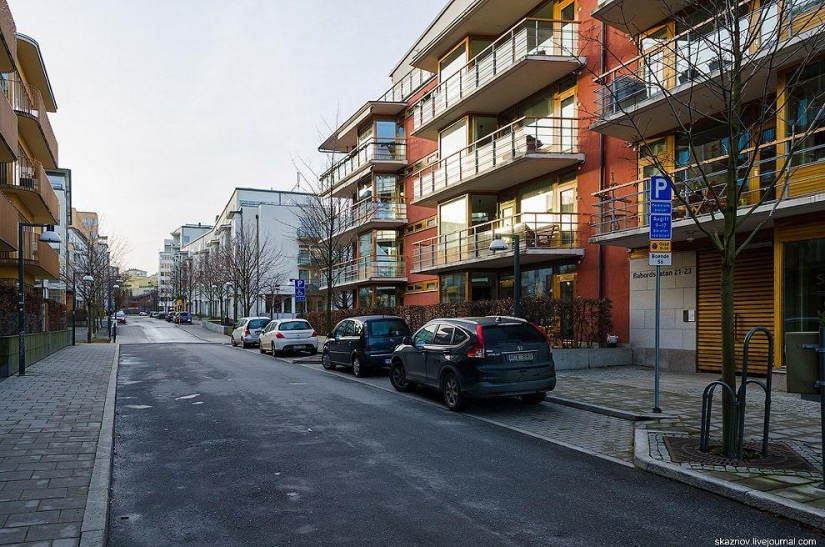
20.
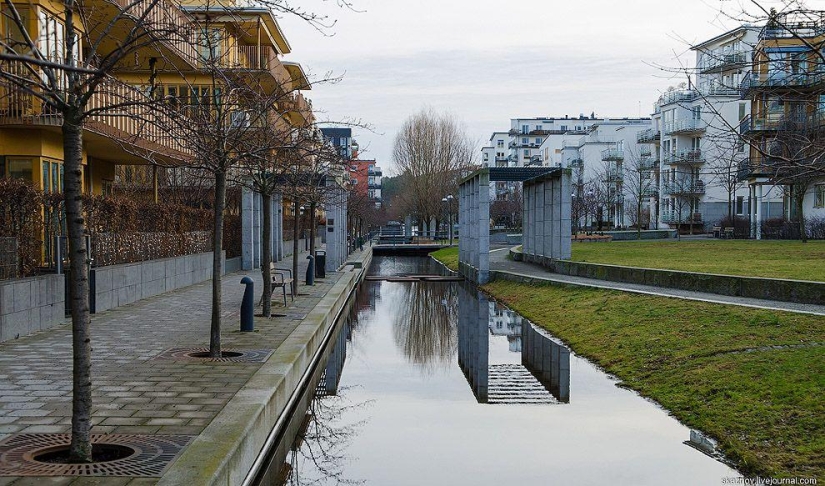
21. A beautiful canal in the very center of the area, along which ducks constantly swim, accumulates rainwater from nearby houses and gardens. Water passes through several reservoirs, where possible sediment settles, and then enters the lake.
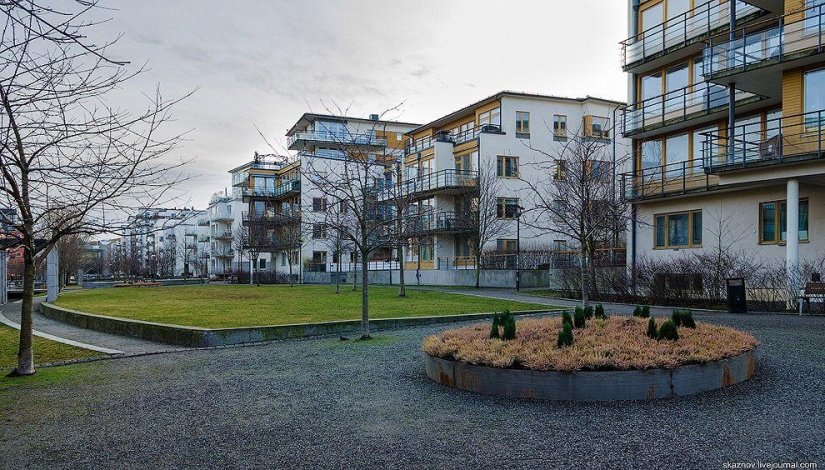
22. More than 25 thousand people now live in Hammarby Sjöstad. There are shops, schools, a church, a cultural center with a theater, a library, a nursing home, special apartments for students and the disabled. 60 percent of housing sold, the rest are rented out. The area of the apartment (two bedrooms, living room, kitchen) varies from 40 to 120 square meters. m, on average - 75. Ordinary people who like to live in a comfortable and pleasing environment settle here. On the streets of Hammarby Sjöstad you will not encounter traffic jams, a minimum of cars and near houses - cars are parked in underground garages. In addition, public transport is well developed here - you can compare hours on trams and buses, free ferries run along the canals. In general, it turned out to be a kind of city within a city. The average age of residents is 35 years.
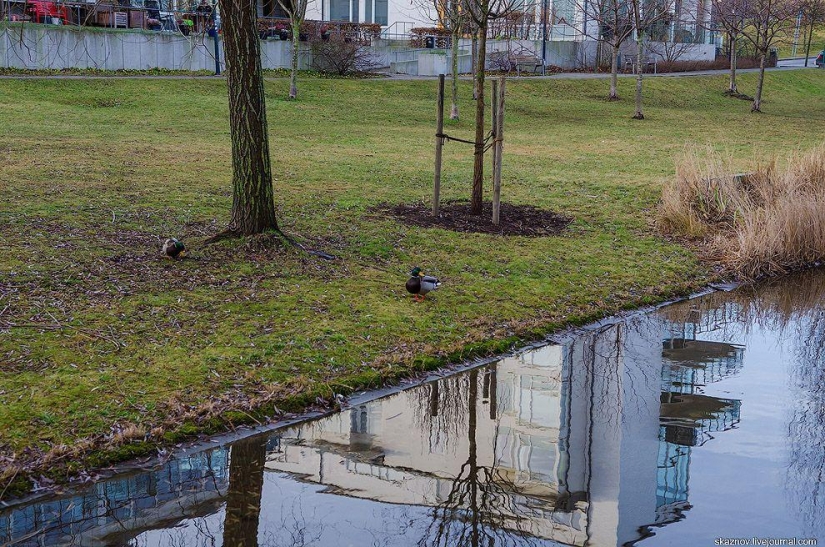
23. And here are the ducks ...
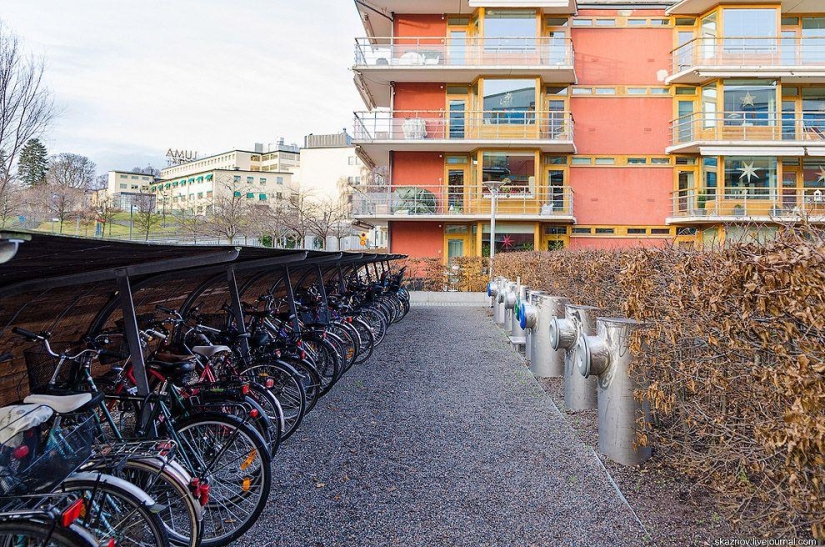
24. Bicycle parking.
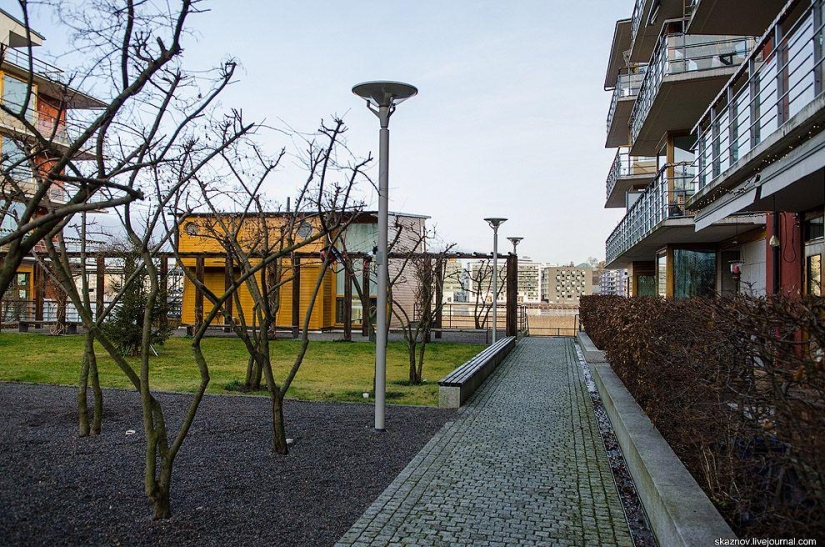
25. Looking at such an accomplishment, I want to cry tears of happiness ...
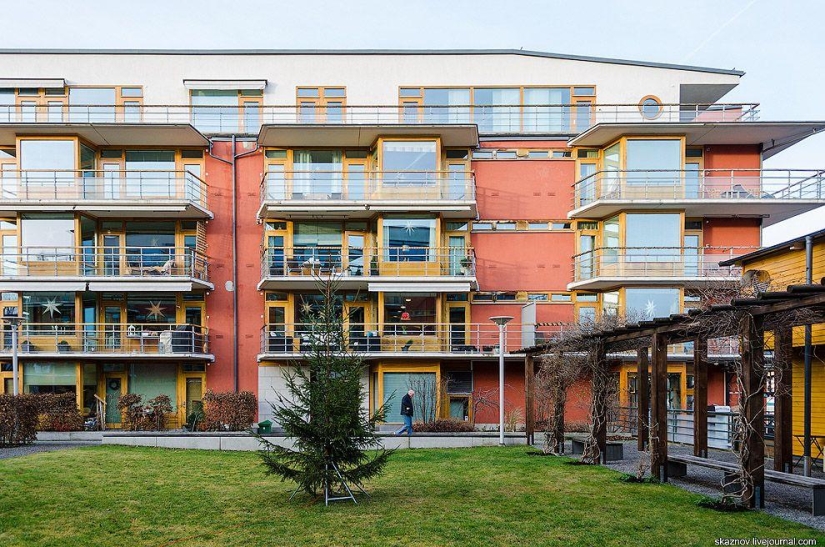
26.
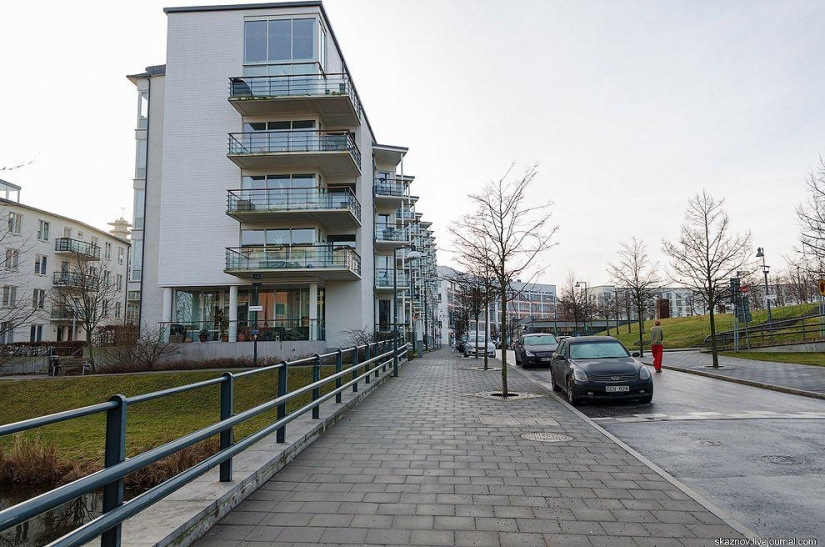
27. A vacuum waste collection system has been introduced here. Through vacuum pipes, garbage flies down at a speed of 70 km / h and is collected in a single central underground storage. Waste is stored in containers underground and transported by special trucks. So it is very rare to see garbage trucks in Stockholm, they do not drive around yards and quarters, but go by the shortest route to the disposal site.
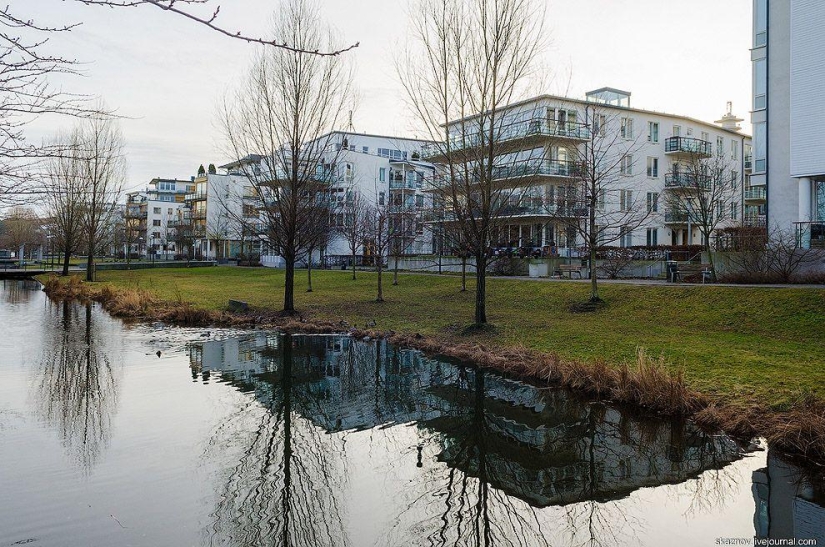
28. If the waste is not recyclable, it is burned in thermal power plants. Only 200 trucks drive up to the Hoghdalen CHPP every day. Half a million tons of household waste is burned here annually, due to which 1,700 million kWh of heat and 450 million kWh of electricity are produced.
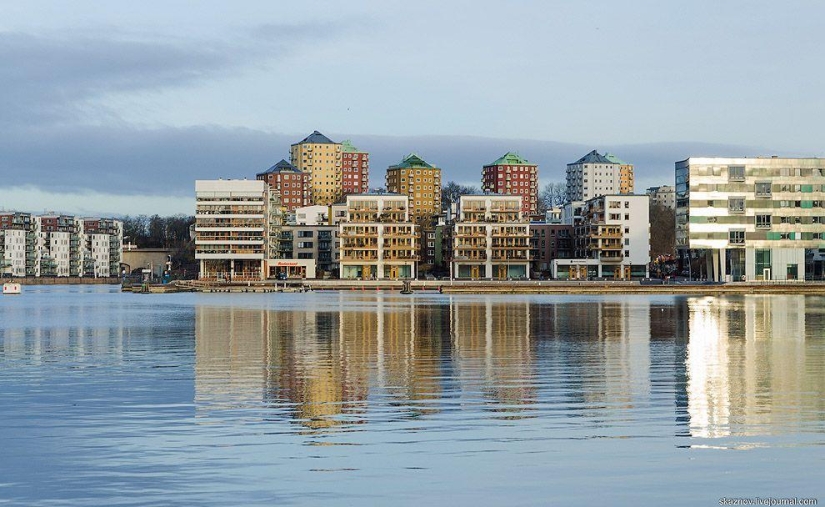
29.
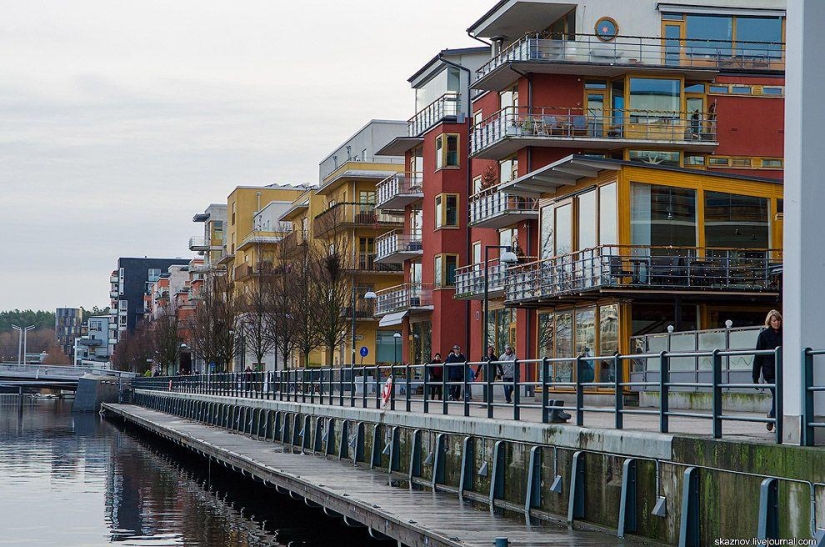
thirty.
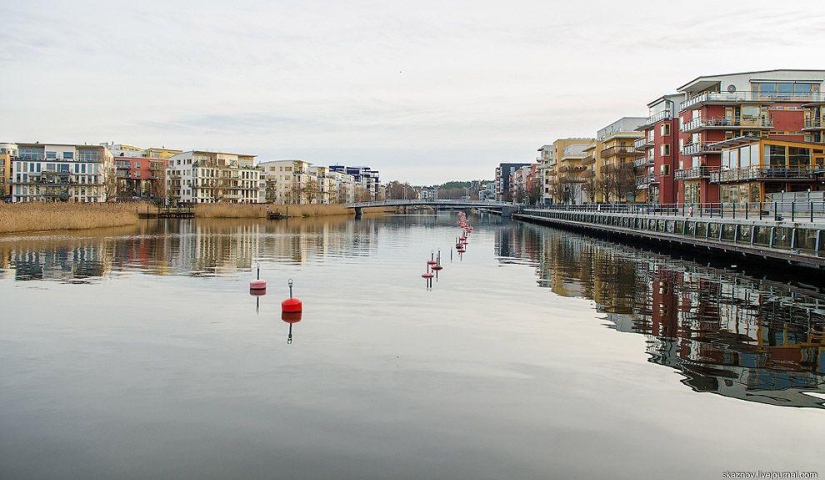
31. While waiting for the ferry, I admired the surrounding silence and smoothness ...
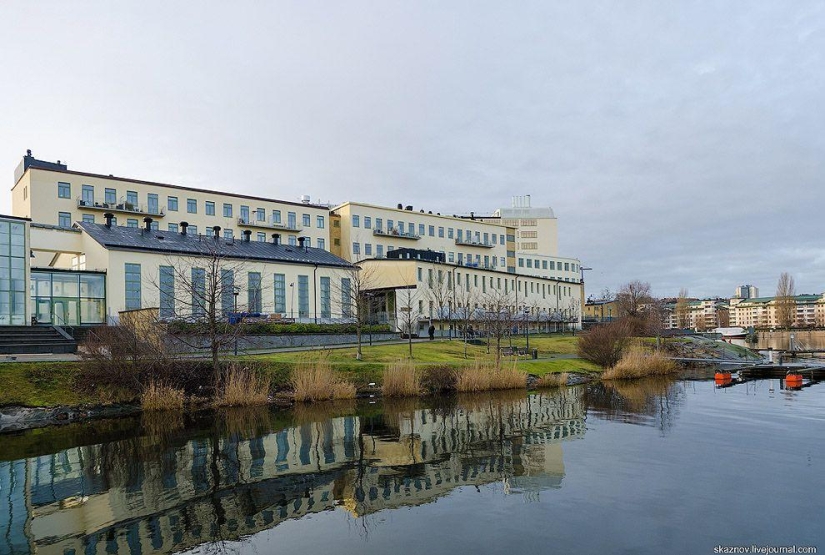
32.
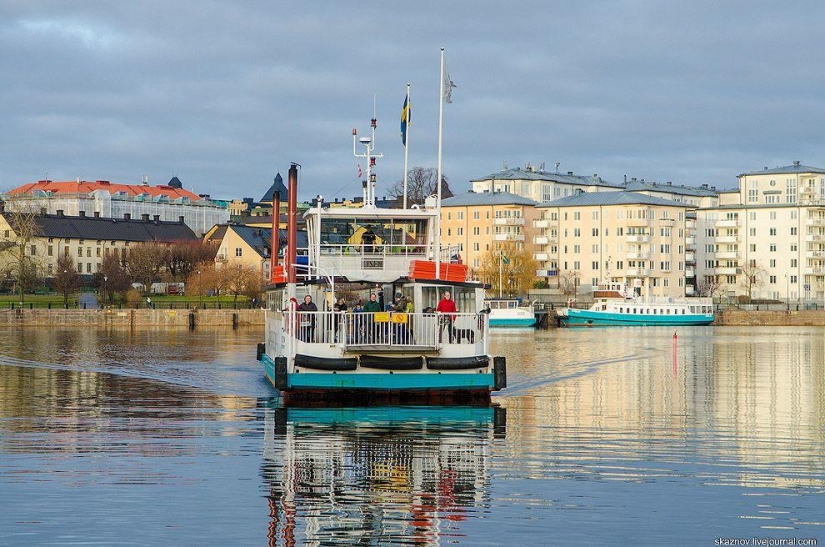
33. The ferry seemed to me to be free. In any case, I did not find anything hinting at tickets.
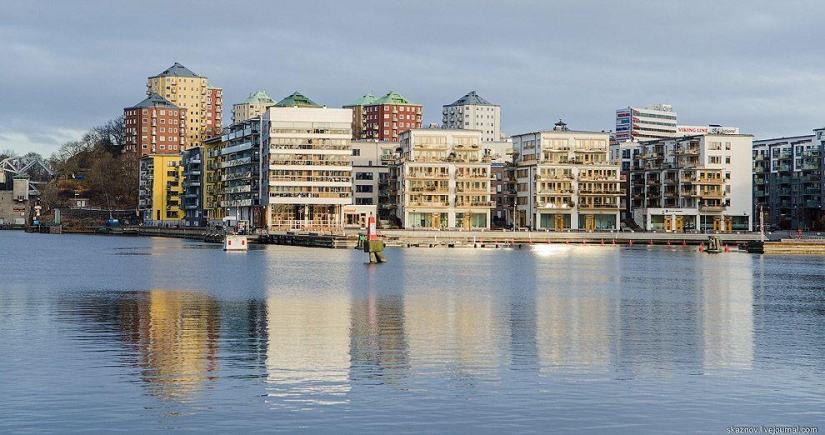
34.
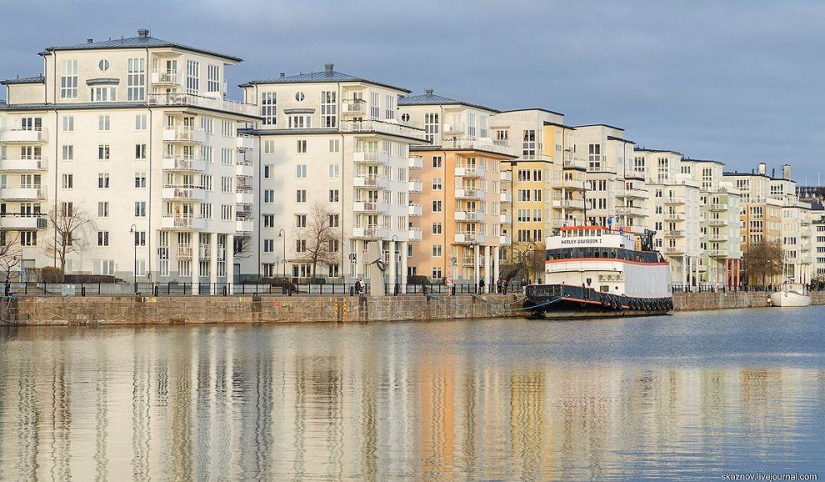
35.
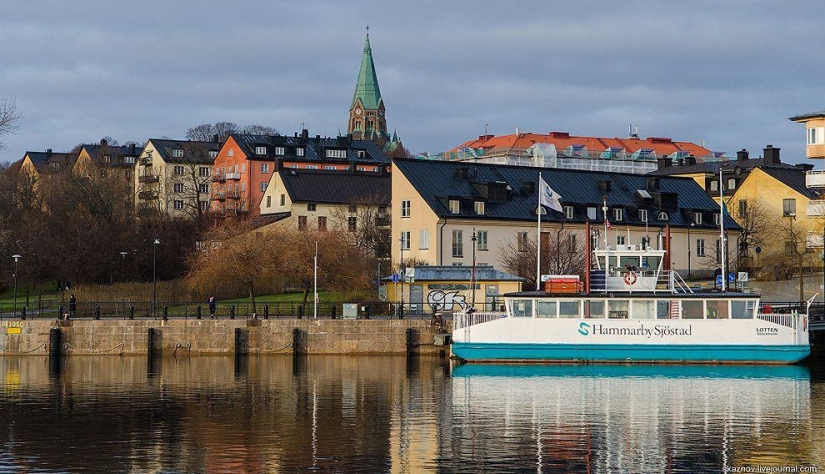
36.
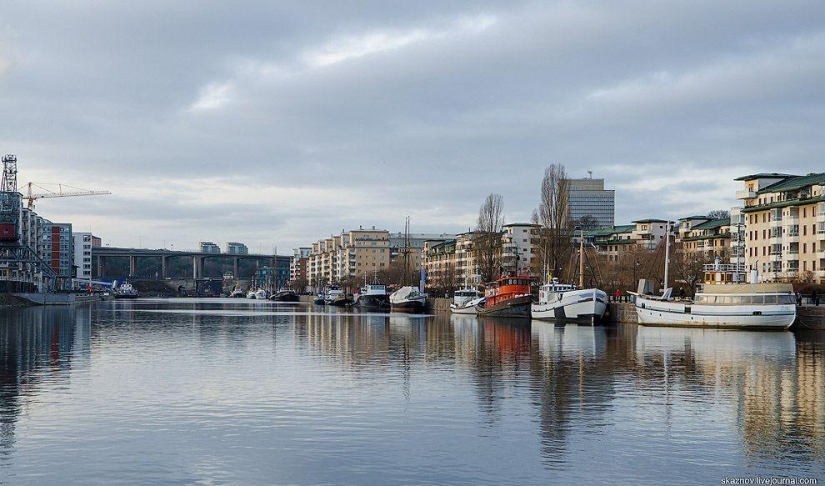
37.
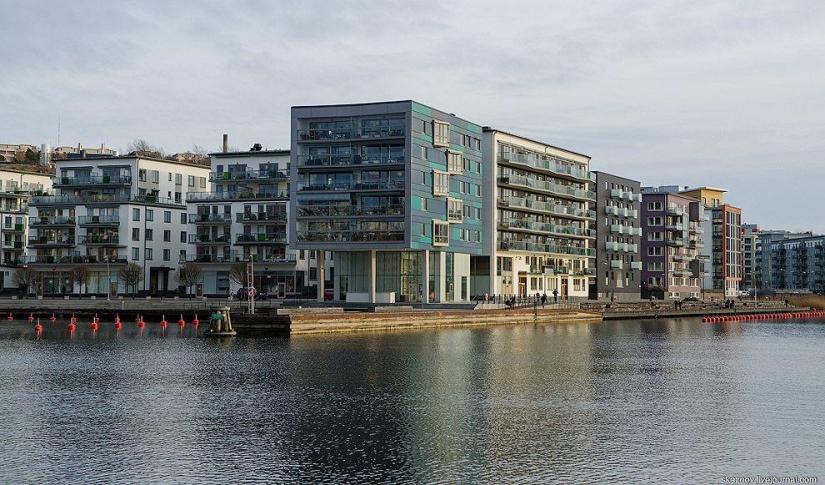
38. One intermediate stop and I'm on the other side ...
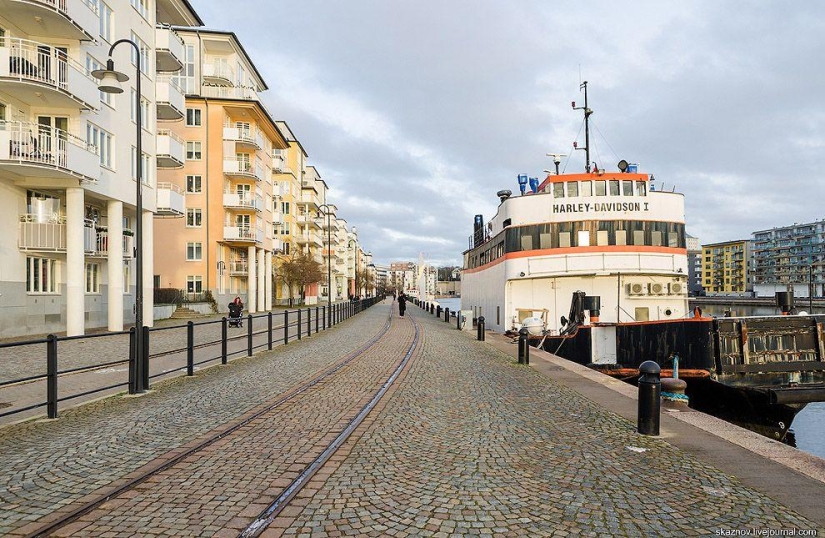
39.
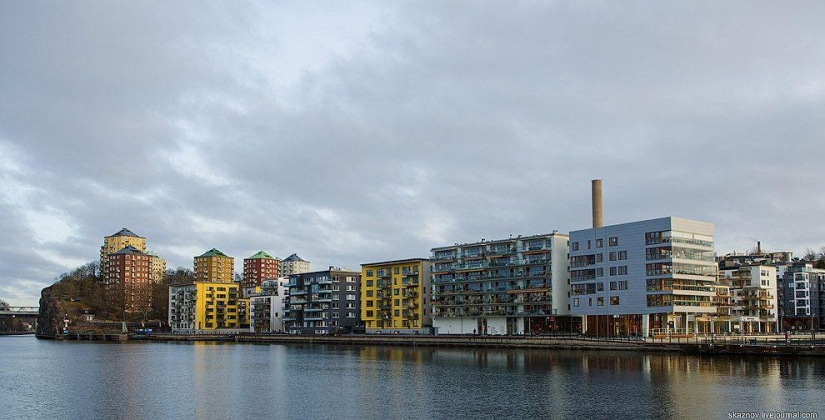
40.
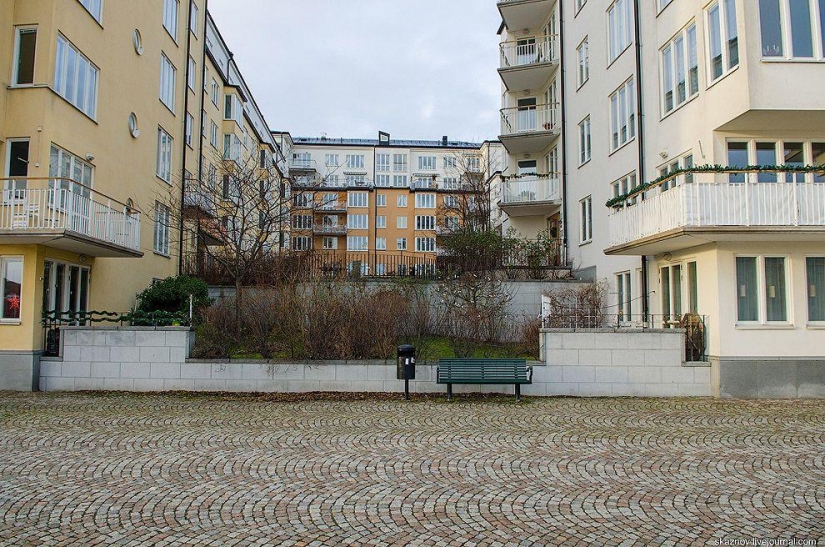
41. The feeling of phantasmagoria does not leave even here ...
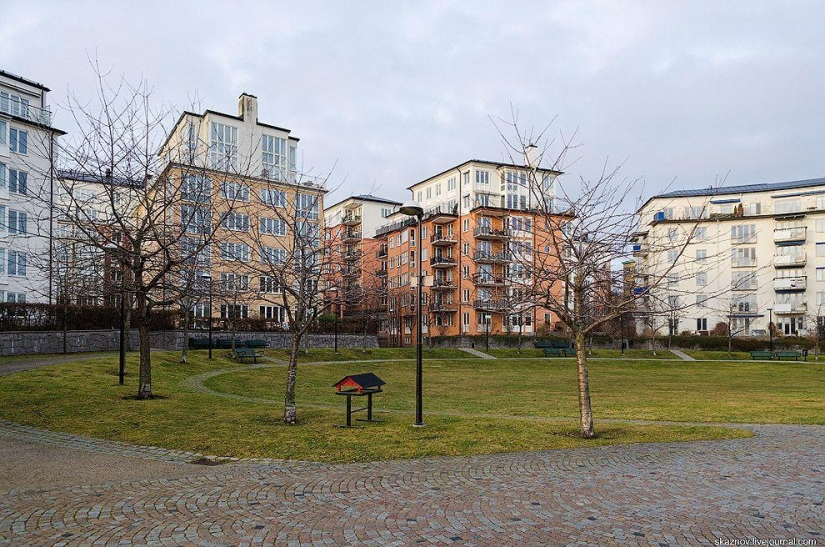
42. Bird feeder.
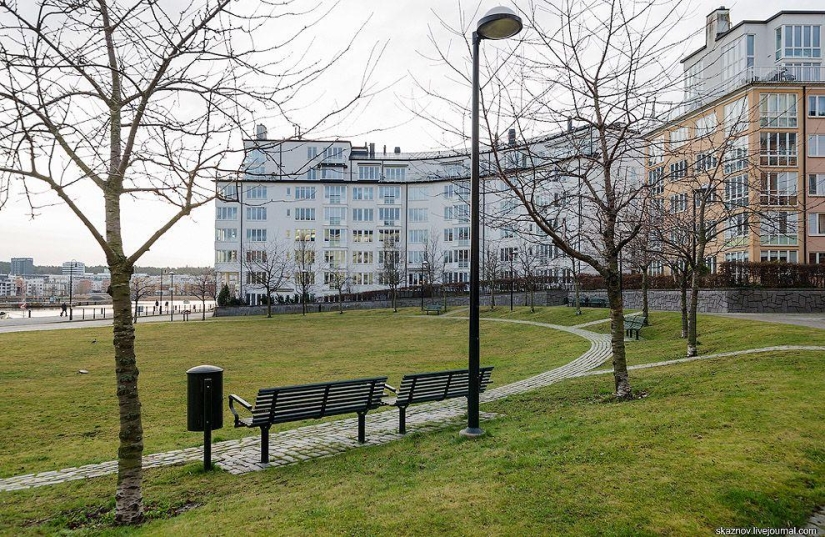
43. Here is such a modernization and innovation in Swedish ... Your own stability.
Keywords: Quarter | Industrial area | Stockholm | Sweden
Post News ArticleRecent articles

It's high time to admit that this whole hipster idea has gone too far. The concept has become so popular that even restaurants have ...

There is a perception that people only use 10% of their brain potential. But the heroes of our review, apparently, found a way to ...
Related articles

The suffering of Thais living in the depths of a terrible slum, carefully hidden from the eyes of tourists visiting the ...

On the eve of the legalization of prostitution in the Netherlands in the network surfaced historical photos of the red light ...

Anton Titov aka itravel writes: “Some of my acquaintances fly on airplanes so much that it would be more correct to say that they ...

New Year's is a time to surprise and delight loved ones not only with gifts but also with a unique presentation of the holiday ...